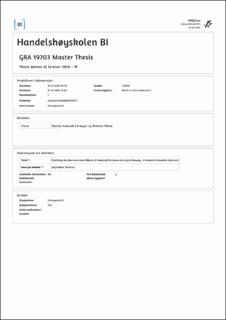Predicting the Macroeconomic Effects of Reducing Petroleum Activity in Norway: A Scenario Evaluation Approach
Master thesis
Permanent lenke
https://hdl.handle.net/11250/3038770Utgivelsesdato
2022Metadata
Vis full innførselSamlinger
- Master of Science [1621]
Sammendrag
In the late nineteen sixties Norway discovered large oil and gas reserves on the continental shelf. This changed the economy profoundly and Norway quickly became a resource-exporting economy. Today, around fifty years after the discovery, the Norwegian petroleum sector employs roughly two hundred thousand workers and is the largest sector in terms of value creation, investment, and governmental and export revenues (Regjeringen, 2021). Moreover, its value chain reaches deep into the Norwegian economy. The offshore industry predictably relies on industrial equipment and on shipping services to sustain production, but services from lawyers, accountants, cleaners, and food caterers are also crucial to ensure well-functioning operations on the continental shelf. High demand for services from direct suppliers like these sets off a chain reaction, as these suppliers will in turn demand more from their own suppliers and thereby engender repercussions throughout the whole economy. Hernes et al. (2021) estimated that the Norwegian offshore industry and its value chain generated a value equivalent to six hundred billion NOK in 2019, which is the largest contribution to Gross Domestic Product (GDP) and accounts for as much as 17 percent. Besides the industry sector, they find strong ripple effects from the offshore industry within legal, engineering, financial, and transport services. In 2019, tax income from the extraction of fossil fuels comprised 20 percent of the Norwegian government’s annual revenue, meaning shelf operations are a crucial component for ensuring the welfare for the Norwegian population (p. 12-13).
Beskrivelse
Masteroppgave (MSc) in Master of Science in Applied Economics - Handelshøyskolen BI, 2022
